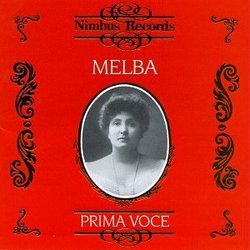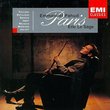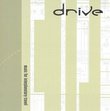| All Artists: Wolfgang Amadeus Mozart, George Frederick Handel, Gustave Charpentier, Jules Massenet, Charles Gounod, Ambroise Thomas, Antonio Lotti, Henry Rowley Bishop, Giuseppe Verdi, Giacomo Puccini, Hermann Bemberg, Claude Debussy, Ernest Chausson, Reynaldo Hahn, Harry T. (Henry) Burleigh, Walter B. Rogers, Landon Ronald, Gabriel Lapierre, Nellie Melba Title: Nellie Melba Members Wishing: 0 Total Copies: 0 Label: Nimbus Records Release Date: 1/27/1998 Genres: Special Interest, Pop, Classical Styles: Vocal Pop, Opera & Classical Vocal, Historical Periods, Modern, 20th, & 21st Century Number of Discs: 1 SwapaCD Credits: 1 UPC: 710357789021 |
Search - Wolfgang Amadeus Mozart, George Frederick Handel, Gustave Charpentier :: Nellie Melba
 | Wolfgang Amadeus Mozart, George Frederick Handel, Gustave Charpentier Nellie Melba Genres: Special Interest, Pop, Classical
|
Larger Image |
CD DetailsSimilar CDs |
CD ReviewsIntroduction to Dame Nellie Melba Steven A. Peterson | Hershey, PA (Born in Kewanee, IL) | 03/09/2007 (4 out of 5 stars) "The "liner notes" say a great deal: "She was a singer who could achieve perfection that was beyond the capability of practically every other comparable singer both in her own and later times; yet she was always spoiling things. While it is true that in most of her recordings there will come a moment. . .when the heart of anyone who with a love of singing will miss a beat, yet, within seconds of affording this glimpse of paradise, she may bring you down to earth with a kind of vocal ungraciousness that was all her own."
Another introductory note. She was 44 on the earliest recordings and nearly 50 on later operatic recordings; there were some late recording sessions, including one mentioned below, when she was in her mid-60s. A sampling of her recordings on this CD. . . . From Mozart's "Le Nozze di Figaro," there is "Voi che sapete." Melba shows a light voice. The technology (acoustic), of course, obscures a lot of her vocal qualities. The transition from her lower to middle and upper registers is a bit rough. There is, though, a smooth line in her singing. She displays a rich voice. The cut that best illustrates the comments quoted from the "liner notes" might be the "Mad Scene" from Thomas' "Hamlet." Melba shows a pretty agile voice in this work. Early on, there is a middling--but not very good--trill. She hits some high notes well early on. The first segment of the scene is smoothly and even elegantly sung. The cabaletta suggests that coloratura technique has changed from the turn of the 19th to the 20th century compared with the past 40 years or so. She hits her high notes fairly well. But there are some passages that are almost beyond describing. At one point, she sounds as if she were barking rather than singing. There were other examples, as the liner notes suggest, of "vocal ungraciousness." The cabaletta is not very compelling coloratura work as I listen to things. On the other hand, her version of Puccini's "Si, mi chiamano Mimi" (from "La Boheme") is smoothly and well sung. Her "musicality" is good. All in all, a very nice version. Finally, an interesting novelty. She sings "Swing low, sweet chariot" in her mid-60s. Her voice is darker and deeper than other cuts on this CD. But she exhibits a very musical version of this work. It is affecting, in fact. She does not overpower the song with operatic technique. This is a nice change of pace on the CD and is a solid version of this tune. As a whole, this is up and down. There are the moments of great musicality--and some pretty ungracious singing, too. This appears to be a useful introduction to Melba's body of work. " |

 Track Listings (22) - Disc #1
Track Listings (22) - Disc #1


